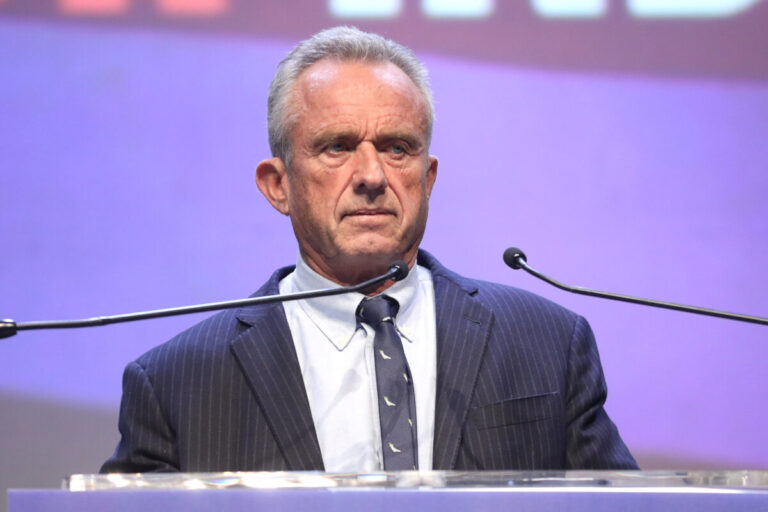The city of Chicago is poised to embark on a groundbreaking initiative – the establishment of municipally-operated grocery stores. This bold step comes amidst a concerning trend of major supermarket chains abandoning the Windy City due to a surge in theft-related challenges. Undeterred, Chicago’s newly elected mayor, Brandon Johnson, has commissioned a comprehensive feasibility study to explore the viability of this unprecedented endeavor.
Fleeing Retailers and Emerging Food Deserts
The departure of prominent grocery giants from Chicago has left a gaping hole in the city’s food landscape, creating a concerning phenomenon known as “food deserts.” These are areas where residents lack access to affordable, nutritious food options, often disproportionately impacting historically underserved communities. As Aldi, Whole Foods, Walmart, and Save a Lot have shuttered their doors, citing financial difficulties, Chicagoans have grown increasingly frustrated with the lack of reliable grocery options in their neighborhoods.
Commissioned Feasibility Study
In response to this pressing issue, Mayor Brandon Johnson has taken a bold step by commissioning a study from HR&A Advisors to investigate the feasibility of establishing city-operated grocery stores. The report’s findings paint a compelling picture, concluding that Chicago could potentially launch a network of three municipally-run grocery stores to address the city’s food deserts. This unprecedented move would make Chicago the first major U.S. city to embark on such an ambitious venture.
Confronting the Challenges of “Food Inequity”
The study’s authors acknowledged the challenges faced by the private sector in sustaining grocery services in underserved communities, stating, “In the absence of private sector action or commitment to provide sustainable grocery options, it is necessary for the city to play a role in creating and sustaining grocery services in neighborhoods that lack grocery access.” This stark assessment underscores the city’s recognition of the need to tackle the issue of “food inequity” head-on.
Upfront Investment and Potential Payoffs
According to the feasibility study, the city would need to invest $26.7 million upfront to establish the proposed three-store network. While this may seem like a significant outlay, the potential benefits to the community could far outweigh the initial cost. By providing reliable access to fresh, healthy food in areas previously lacking such options, the city-run grocery stores could have a transformative impact on the overall health and well-being of residents.
Lessons from History and the Rise of “Food Sovereignty”
Critics of the plan, however, have drawn parallels between Chicago’s initiative and the failed attempts of communist regimes to control the production and distribution of food. They argue that history has shown such centralized approaches often lead to disastrous consequences. Proponents, on the other hand, counter that this is a matter of “food sovereignty” – the right of communities to have control over their own food systems, rather than being solely reliant on the whims of the private sector.
Addressing the Needs of Underserved Communities
Ameya Pawar, a former Chicago alderman who now works for the Economic Security Project, a nonprofit focused on fighting inequality, eloquently articulates the rationale behind the city-run grocery store proposal. He states, “What we need in communities is banks and grocery stores and pharmacies that are permanently tethered to the community. The demands of shareholders shouldn’t be tied to the health and wellbeing and lifespan of local stakeholders.”
Potential Challenges and Considerations
Undoubtedly, the implementation of city-operated grocery stores will face a myriad of challenges, from logistical hurdles to potential political opposition. The city will need to navigate complex issues such as supply chain management, staffing, and pricing strategies to ensure the stores’ long-term viability and accessibility. Additionally, the city will need to carefully consider the potential impact on existing private grocery operators and explore ways to foster collaboration rather than competition.
Embracing Innovation and Community-Driven Solutions
Despite the naysayers, the city of Chicago’s bold move to establish municipally-run grocery stores represents a refreshing departure from the status quo. It signals a willingness to embrace innovative, community-driven solutions to address the pressing issue of food insecurity. By taking matters into its own hands, Chicago is poised to rewrite the narrative and potentially inspire other cities facing similar challenges to follow suit.
Potential for Replication and Scalability
If successful, Chicago’s experiment with city-operated grocery stores could serve as a blueprint for other municipalities grappling with the challenges of food deserts and inequitable access to fresh, nutritious food. The lessons learned and the model developed in Chicago could be adapted and scaled to address similar problems in urban and rural communities across the United States. Ultimately, this may lead to more socialism/communism in America. But, this is Chicago we’re talking about, so it’s very likely to fail.




Leave a Comment